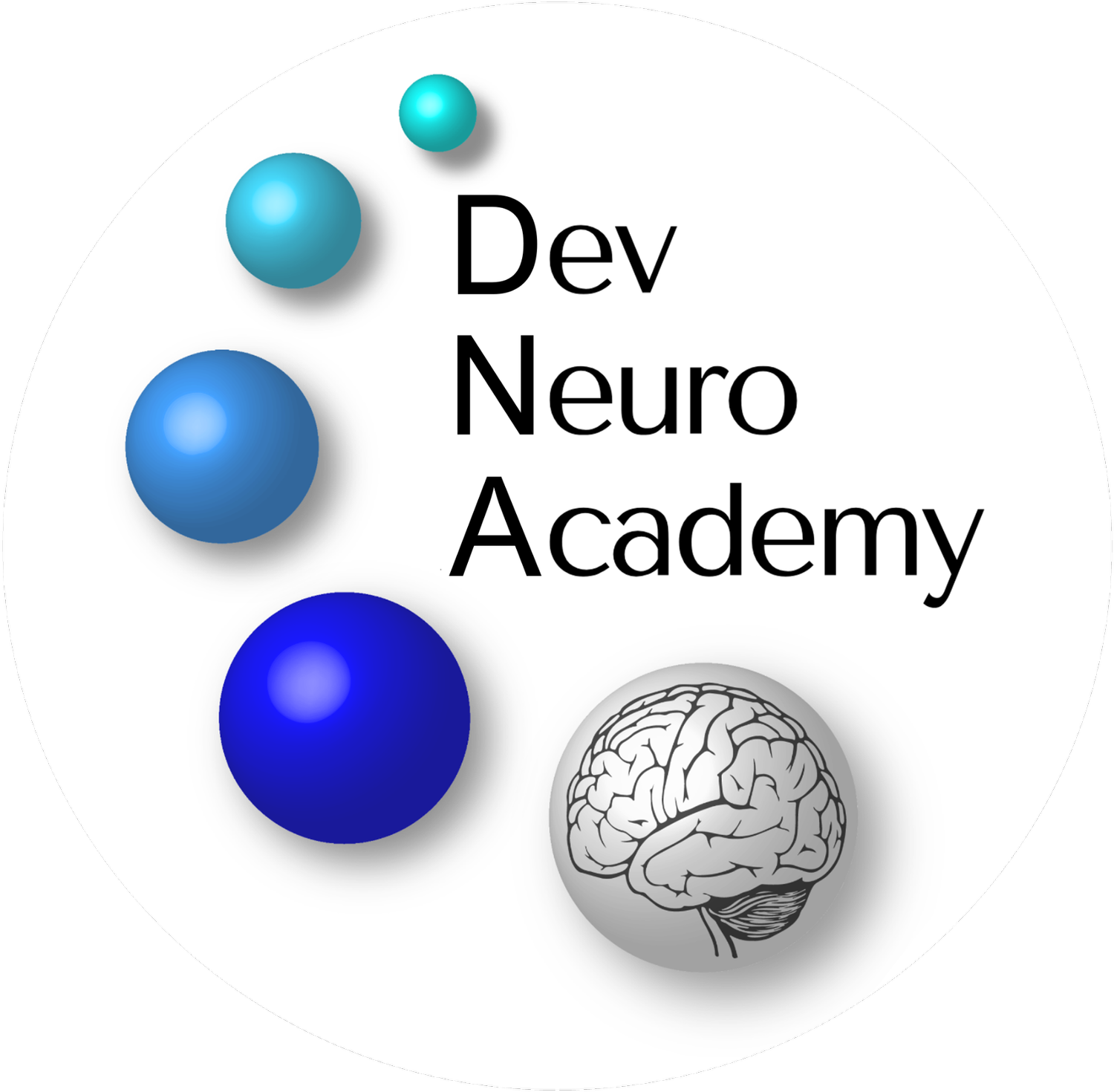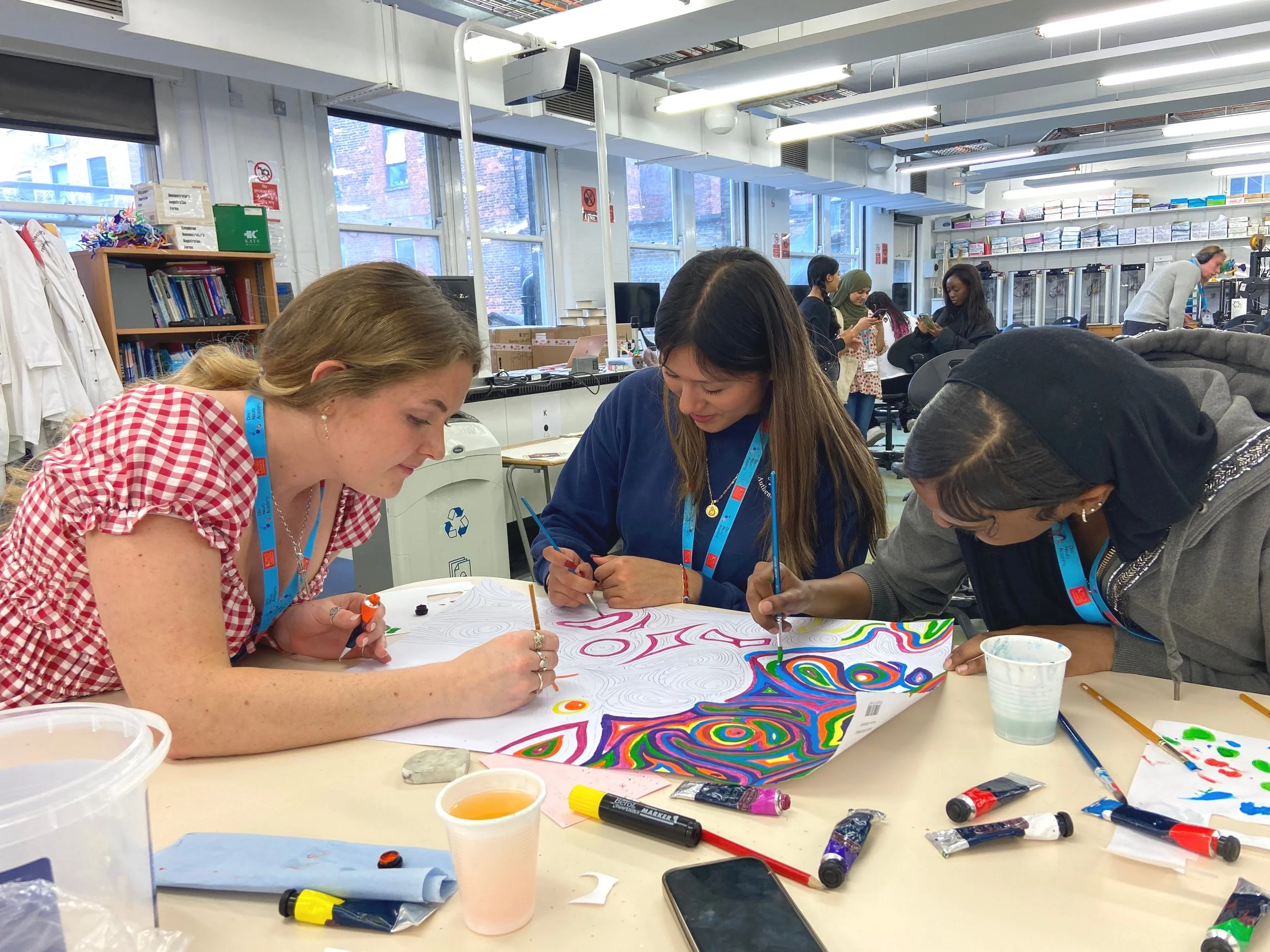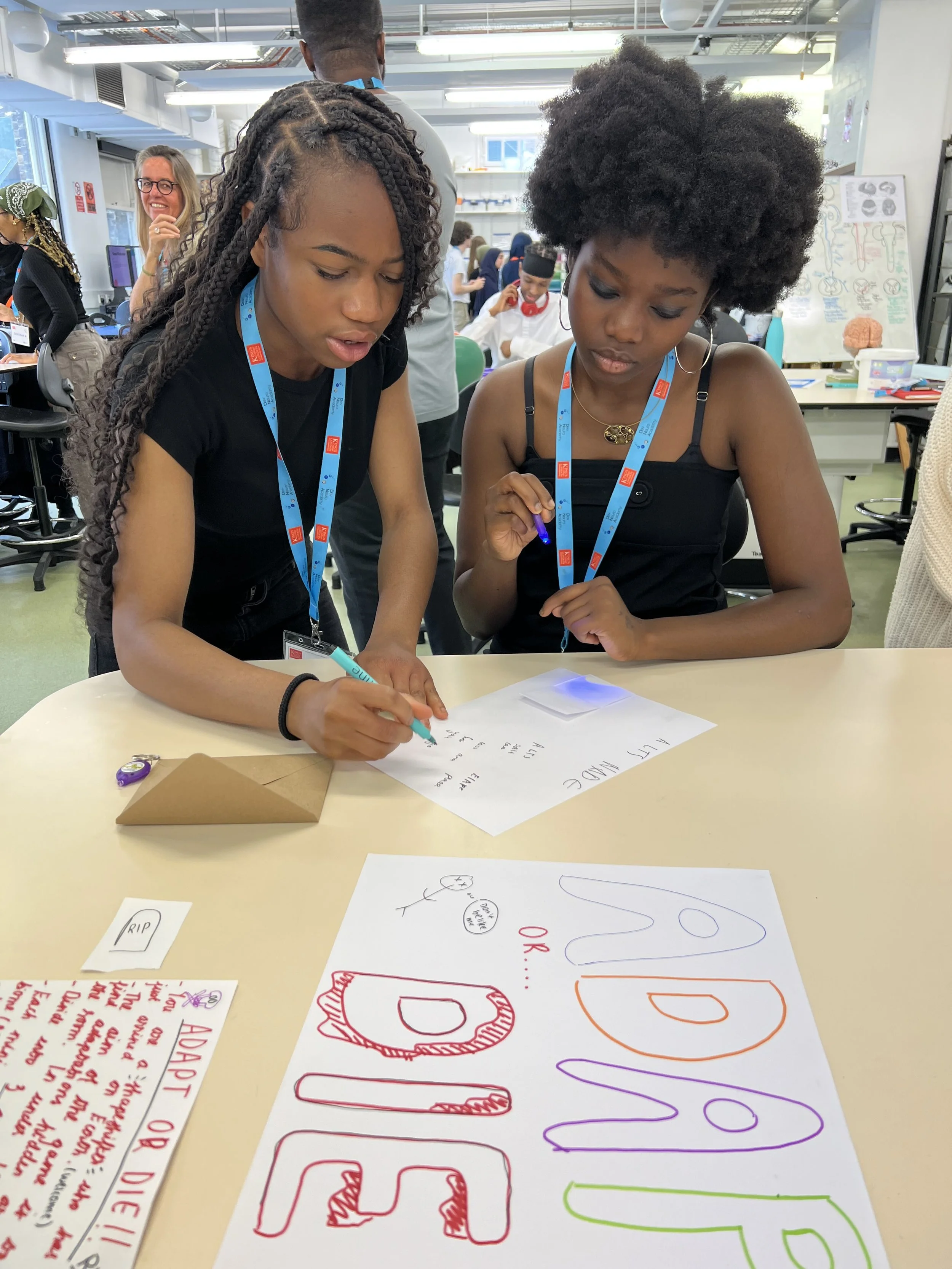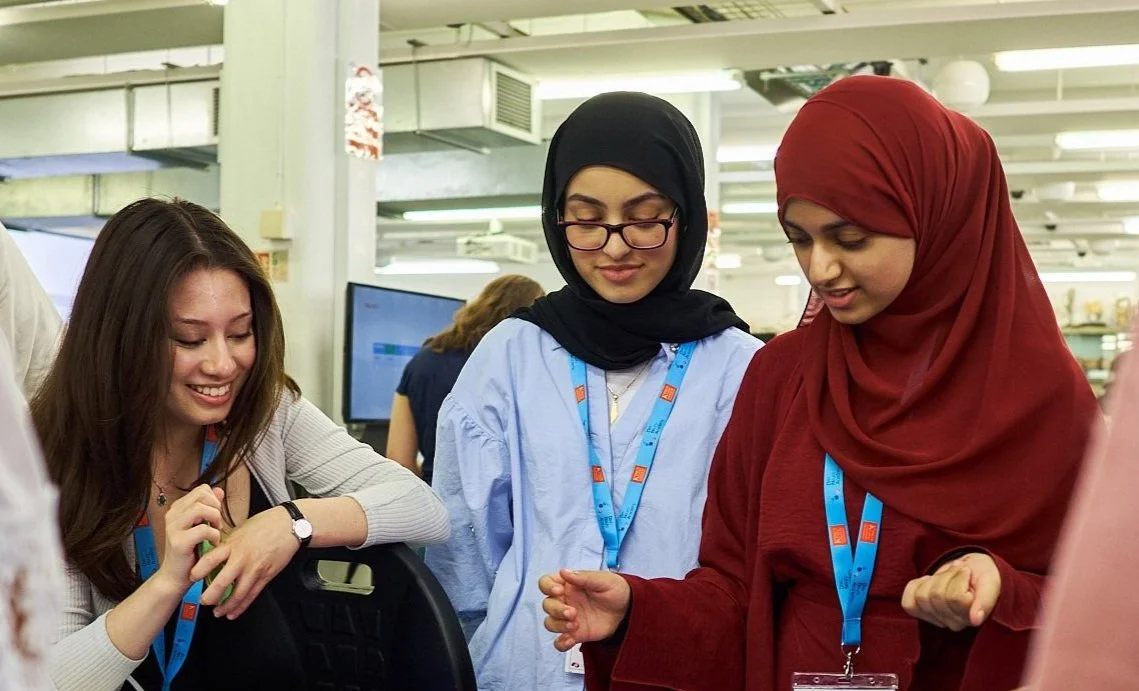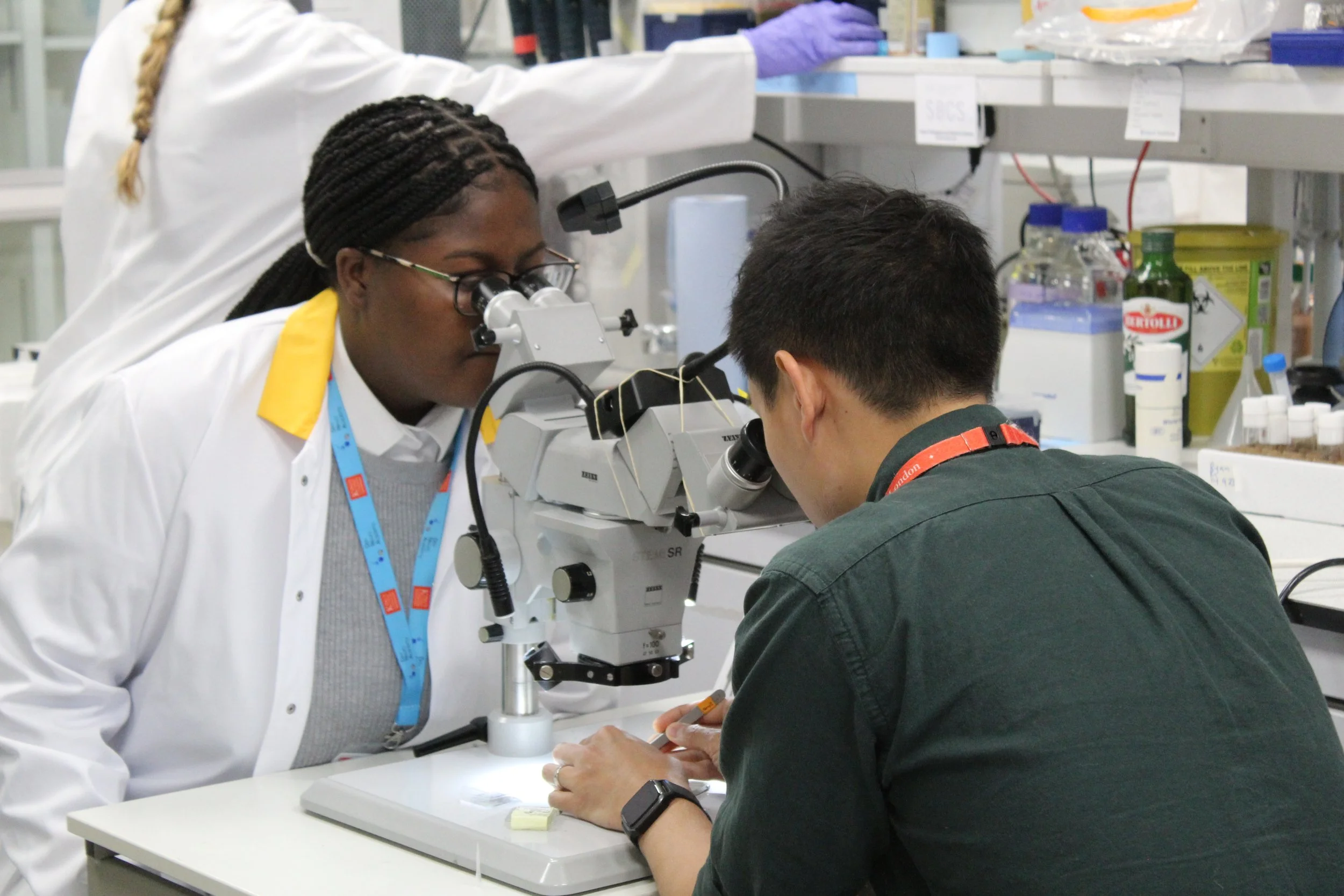Where creativity meets discovery
Dev Neuro Academy CREATE, the 2025 iteration of our summer school, is a 4-day programme for students in Year 12, run by the Centre for Developmental Neurobiology and the Medical Research Council Centre for Neurodevelopmental Disorders at Kings College London.
DNA CREATE brings together creative practice and neuroscience research for an unforgettable week, introducing students to the benefits of interdisciplinary thinking and creative approaches in science and research.
DNA CREATE will be delivered with values of authenticity, creativity, care and self-expression, taking students on an exciting journey into the worlds of cutting-edge neuroscience, creative science communication, artful storytelling and imaginative exploration of research. The 4-day programme culminates at a showcase and celebration at the Science Gallery London.
Watch this space
Watch this space
Objectives of DNA CREATE
To invite the exploration of creativity and interdisciplinarity within neuroscience
To inspire interest in neuroscience research and introduce the field of science communication
To welcome students into the higher education setting and support university applications
To create a community of supportive peers and a sense of belonging
The DNA CREATE programme
In DNA CREATE students will take part in interactive workshops and project group work exploring neuroscience research through creative approaches, building towards their own piece of creative output or science communication. These will be showcased at Science Gallery London at the end of the week.
DNA will highlight both the creativity in science and the value of exploring science through creativity. Participants will gain experience and understanding of interdisciplinary approaches and their value.The DNA CREATE programme will be collaboratively facilitated by artists, researchers, undergraduates and DNA Champions, inviting students to explore and experiment at the interplay between creativity, neuroscience, knowledge and research.
Science education and neuroscience research are both often experienced as rigid disciplines. It is correct that there is a way that research must be conducted and that there is a syllabus to learn. However, often the rigidity spills into other areas: there is only one way to think about something, there is only one way to be a scientist. A key motivation behind DNA CREATE is about opening up neuroscience research. In centring curiosity and creativity, we’ll explore new ways of approaching research, find new, broader definitions of neuroscience and neuroscientists, discover new ways of neuroscience meeting citizen scientists, non-scientists and members of the general public.
Science & Creativity
The DNA CREATE programme brings together science and creativity. We will explore:
-
How it can:
invite new ways of looking at problems,
help create new approaches,
find new forms and ways of presenting research beyond the institution.
-
As inspiration for artworks,
As stories and histories to be told,
Through experiences and games that give insights into our mind and behaviours.
-
The field of neuroscience research is already creative,
Researchers bring creative approaches into their work every day,
Science and creativity, so often represented as separate are in fact deeply connected.
The Culture of DNA CREATE
In DNA CREATE we want both students and researchers to feel confident in bringing all of themselves to their identity as a scientist, and to build confidence in curiosity and thinking in new and unconventional ways. Through creative approaches, students will be facilitated in recognising themselves as scientists within academic spaces. Rather than the programme showing them an outline of a researcher and asking students to conform to it, we will support students to expand their mental model of a researcher, scientist and academic so they are already inside.
Students do not need to change who they are to become a researcher: they can bring themselves.
Through the week we want to create a culture of authenticity, creativity, care and self-expression.
We want students and researchers alike to feel:
Confident interacting with unconventional ways of thinking, with different ways of looking at science, at research, at their own questions and curiosity.
Confident in and with academic ideas, people and spaces.
Excited about the field of neurobiology and neuroscience and to have a sense of the cutting edge and current research in the discipline.
As though they were able to bring their authentic self to their work over the week.
Through creative expression we’ll explore new ways of thinking about and approaching neuroscience research. We believe in a research culture where creativity is deeply embedded. Through creativity there are new ways of approaching research, doing research and communicating research. We are passionate about building this research culture, and we can think of no better way to start doing this than with DNA CREATE.
